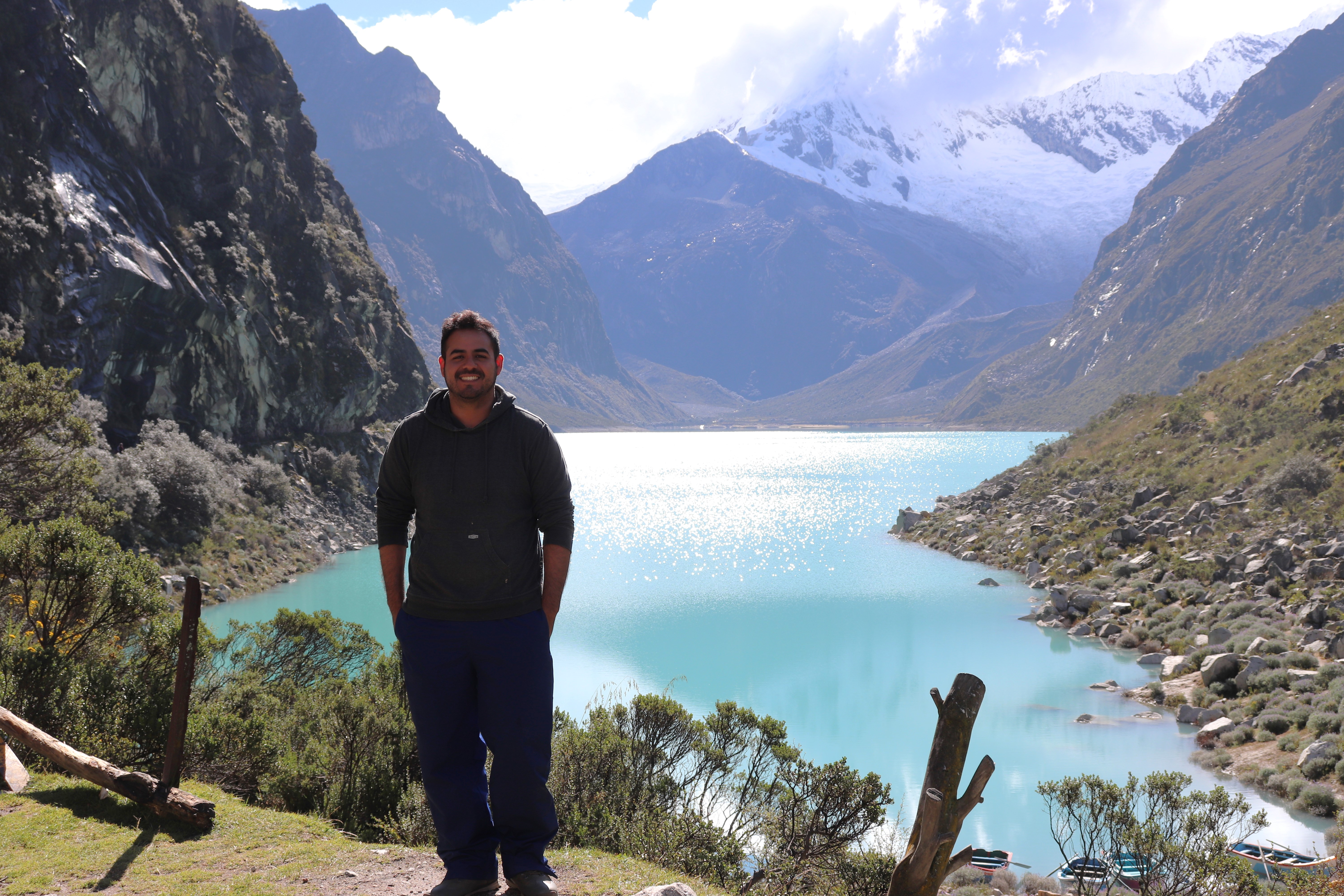‘You can’t get more experiential than field camp’
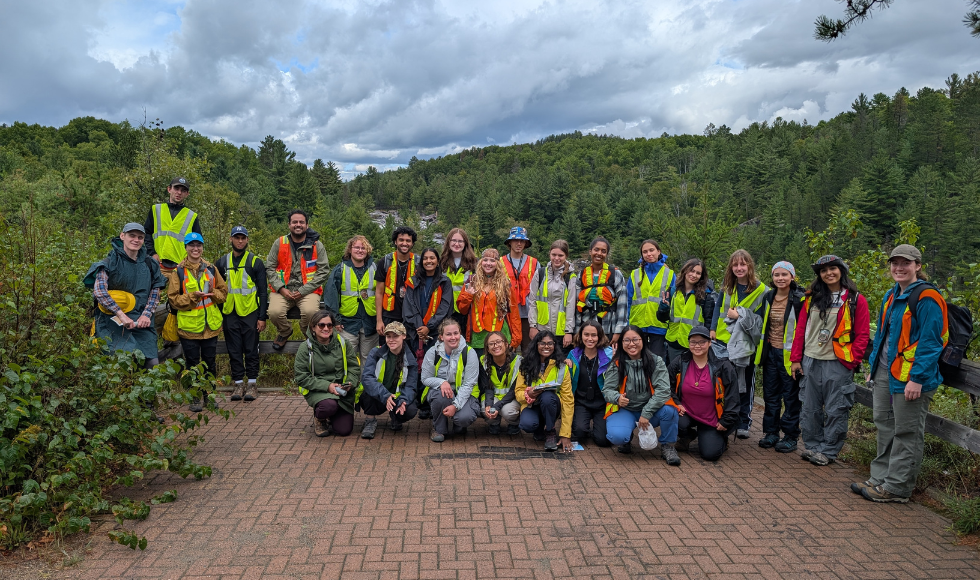
The EARTHSC 3FE3 (field camp) class at the A. Y Jackson Lookout in Sudbury, Ontario. (Photo by Rodrigo Narro Pérez)
Assistant professor Rodrigo Narro Pérez should’ve felt more confident when he was tapped to lead this year’s field camp.
The camp is a third-year course , which has been run for decades by the School of Earth, Environment & Society. At summer’s end, dozens of students spend eight days in Northern Ontario for a real-world introduction to field equipment and methodologies used by earth and environmental scientists. It’s a required course for any student wanting to earn professional certification as a geoscientist in Ontario.
“If you want to be a geoscientist, the best place to learn is outdoors and the best way to learn is hands on,” said Narro Pérez. “You can’t get more experiential than field camp.”
He’d been an inspired choice to lead the 2025 edition of field camp: Narro Pérez had taken the course himself back when he was an undergrad in the Integrated Science & Earth and Environmental Sciences program.
He’s been working in the field for more than a decade since as a grad student, postdoc and assistant professor; and teaches first and second-year undergraduate courses that get students out of the classroom, and turn Hamilton’s escarpment into a living lab.
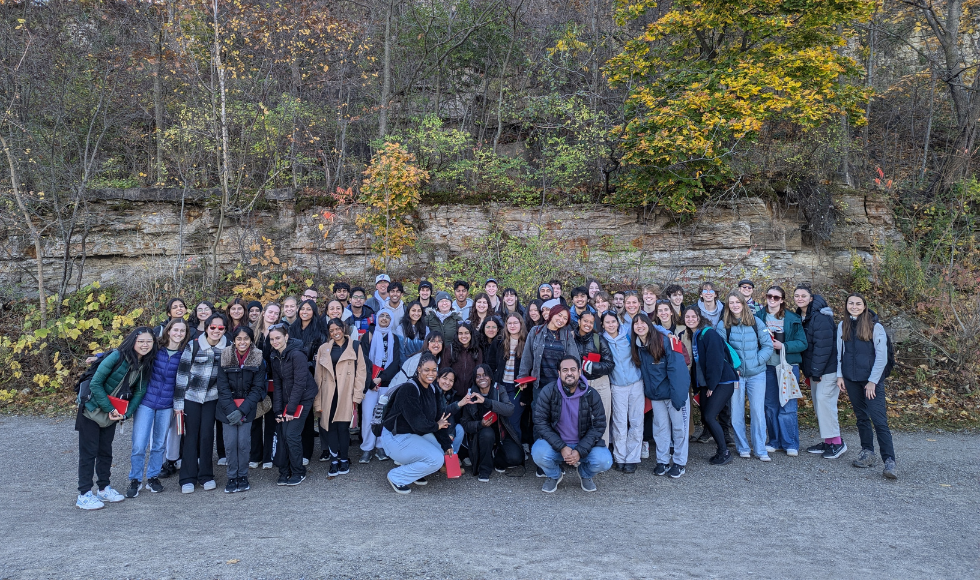
So why the doubts when asked to lead the 2025 field camp?
It had been 13 years since Narro Pérez went to field camp – he remembered the overall experience but was hazy on the specifics. And his years of field work have happened on tropical glaciers in Peru; it’s been 10,000 years since the Sudbury area was covered by a glacier.
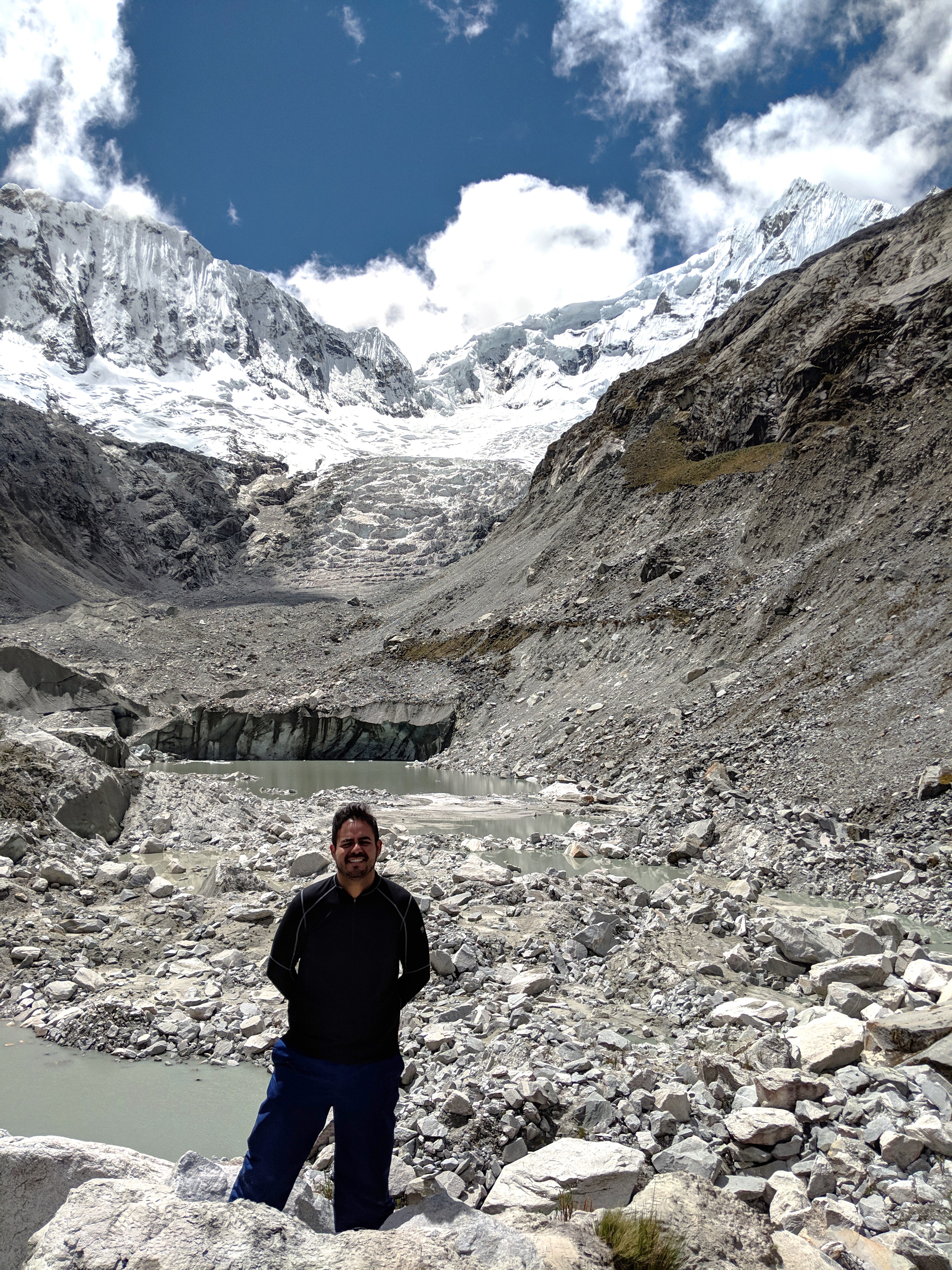
Narro Pérez could easily and happily spend every minute of field camp talking about sediment, ice and glacial lakes. But igneous and metamorphic rocks? “That’s outside my comfort zone.”
But he knew that camp can be a game-changer for undergrads, as the first time many get out in the field for an extended period of time.
So earlier in the summer, Narro Pérez enlisted the help of his colleague and associate professor, Alex Peace, who led last year’s camp. They made the drive up to Sudbury, talking the whole way there and back and walking through all the spots where students would visit. At camp, Narro Pérez also had lots of help, with instructional assistant and field camp veteran Rebecca Moumblow and a crew of teaching assistants.
A ticking clock
Narro Pérez decided to lean into his experiences doing international field work during the camp. He talked with the students about the challenges and rewards of doing research in remote locations, where local support is essential and it’s a constant race against an unforgiving clock and unpredictable weather.
“When you’re working in the field, you have limited time and money to collect the data you need,” he said.
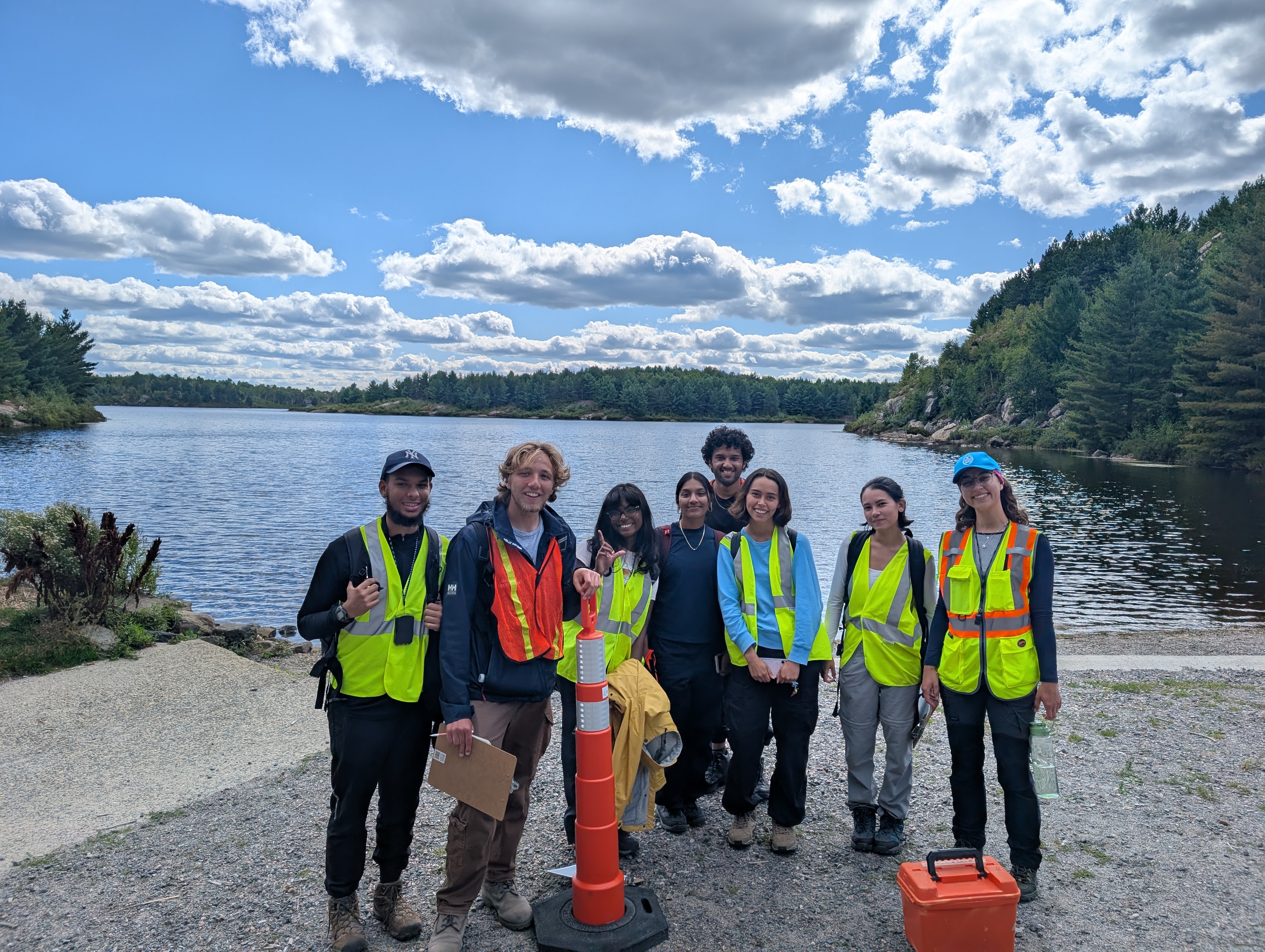
He stressed the importance of developing first-rate communication skills – scientists need to know how to clearly explain their research to anyone and everyone.
Those are essential skills that Narro Pérez has worked on since undergrad, and it’s why he later enrolled in the McCall MacBain Postdoctoral Fellows Teaching & Leadership program.
Narro Pérez had been in the news earlier this summer, taking with the CBC about Dharali, a village in the Himalayas, that was destroyed in a sudden landslide of water, mud and rock. Narro Pérez’s work with the Glacial Lake Outburst Floods project in Peru makes him an expert on how climate change is increasing the risk of catastrophic floods from glacial lakes swollen with melt water. He said there’s an urgent need for close monitoring and early warning systems to save lives.
Narro Pérez also used the field camp to drive home the importance of practicing interdisciplinary research. “It’s something I was taught as an Integrated Science student and I may be taking to extremes in my career. Everything I do is interdisciplinary and sometimes goes beyond the bounds of science.”
Work with impact
Along with planning the field camp, Narro Pérez spent part of his summer in El Salvador, working on a McMaster Institute for Research on Aging-funded project with sociology associate professor Geraldina Polanco. They were in Central America’s smallest country to record the stories of older people who’d been forcibly returned from the United States.
“This work was the toughest I’ve ever done. I had to stop myself from crying many, many times,” he said.
The stories hit close to home – Narro Pérez’s parents were 45 years old when they left Peru and came to Canada to build a better life for their family.
His parents believed education was the key to unlocking opportunities. Both Narro Pérez and his younger sister went to McMaster. His family’s experience is why Narro Pérez is heavily involved in Latin American and Latinx Studies at McMaster, drawing on his work as a geoscientist to draw attention to the impacts of climate change in the Global South. “What’s happening there is a preview of what’s coming here.”
In the days leading up to field camp, Narro Pérez set clear expectations with the 24 students. He told them to expect long days – this wasn’t a summer vacation. They’d be physically and mentally tired after eight hours out in the field. He asked students to tell him if they were exhausted, because that’s never a good state to be in as a researcher. “That’s when mistakes get made and accidents can happen.”
But he also reminded the students to have fun when their learning was done. “You’re 20-years-old, it’s the end of summer and our base camp is at a lakeside resort just outside Sudbury.”
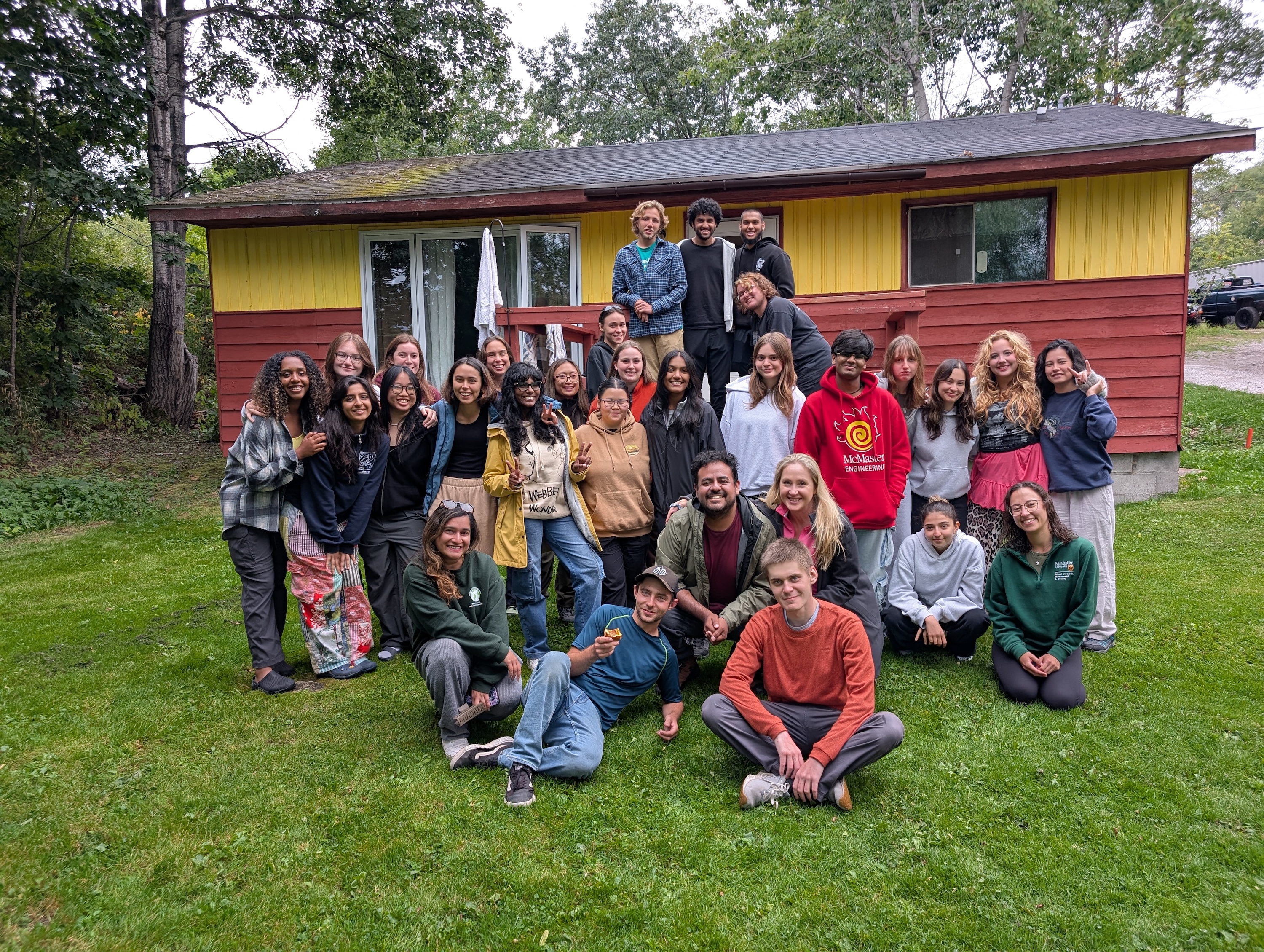
For Narro Pérez, few experiences build camaraderie like field work. Students spend hours together, riding the bus, sharing communal meals, and experiencing the trials and triumphs of doing research in uncontrolled environments. Field camp will be one of their most memorable experiences from their time at Mac.
And Narro Pérez hopes there will be students from this year’s camp who – like he did 13 years ago – fall in love with field work and dedicate their careers to doing vital research, both close to home and around the world.
